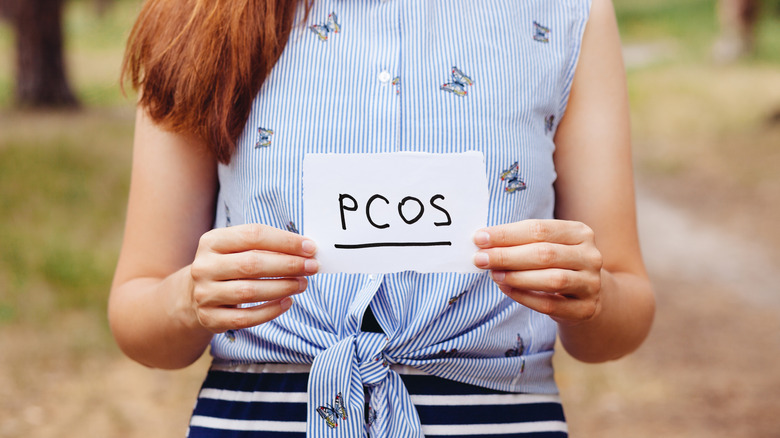If This Happens To Your Menstrual Cycle, It Could Be A Sign Of PCOS
After a surgical procedure, your doctor will probably give you some instructions on what foods to eat and what foods to avoid in the coming days and weeks. Your diet can greatly affect how you feel and how quickly you heal after an operation. Even with specific instructions, it's a good idea to be aware of the types of foods you should not eat, just in case a craving comes on. According to Verywell Health, it's important to avoid foods that can cause constipation after surgery. Cheese and other dairy products can cause constipation in some people.
Dairy products can also cause stomach upset in some people and may increase secretions in the lungs. All of these issues can make your recovery more uncomfortable. If you don't experience problems when eating dairy products, it is still smart to eat low-fat dairy options while you recover. Some foods may make you feel sick post-surgery even if they don't when you're healthy.
How to treat PCOS
There is currently no cure for PCOS. Treatment tends to focus on individual concerns about the condition, whether that is irregular periods, infertility, acne, obesity, or other side effects of this health issue (via Mayo Clinic). Weight gain is common for people with PCOS, so your doctor may recommend dietary and lifestyle changes if you need to manage your weight. This may include a low-calorie diet and an exercise regime. Staying at a healthy weight can improve symptoms of PCOS.
Some medications can help regulate your menstrual cycle, including combination birth control pills or progestin therapy. If you are dealing with infertility due to PCOS, other medications can help you ovulate. These include clomiphene, which is an anti-estrogen medication, letrozole, which stimulates the ovaries, and gonadotropins, which are injectable hormone medications. Maintaining a healthy weight, staying active, and limiting carbohydrates in your diet may help manage moderate PCOS symptoms as well.


